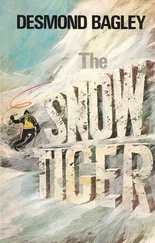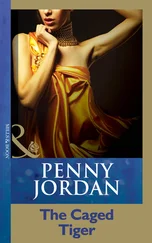"What is it, Balram?"
"Sir, will you step out, there is a problem."
"What problem?"
His body just wouldn't budge! It knew-the body knew-though the mind was too stupid to figure it out.
"The wheel, sir. I'll need your help. It's stuck in the mud."
Just then headlights flashed on me: a car was coming down the road. My heart skipped a beat. But it just drove right past us, splashing muddy water at my feet.
He put a hand on the door and was about to step out, but some instinct of self-preservation still held him back.
"It's raining, Balram. Do you think we should call for help?"
He wriggled and moved away from the door.
"Oh, no, sir. Trust me. Come out."
He was still wriggling-his body was moving as far from me as it could. I'm losing him, I thought, and this forced me to do something I knew I would hate myself for, even years later. I really didn't want to do this-I really didn't want him to think, even in the two or three minutes he had left to live, that I was that kind of driver-the one that resorts to blackmailing his master-but he had left me no option:
"It's been giving problems ever since that night we went to the hotel in Jangpura."
He looked up from the cell phone at once.
"The one with the big T sign on it. You remember it, don't you, sir? Ever since that night, sir, nothing has been the same with this car."
His lips parted, then closed. He's thinking: Blackmail? Or an innocent reference to the past? Don't give him time to settle.
"Come out of the car, sir. Trust me."
Putting the cell phone on the seat, he obeyed me. The blue light of the cell phone filled the inside of the dark car for a second-then went out.
He opened the door farthest from me and got out near the road. I got down on my knees and hid behind the car.
"Come over this side, sir. The bad tire is on this side."
He came, picking his way through the mud.
"It's this one, sir-and be careful, there's a broken bottle lying on the ground." There was so much garbage by the roadside that it lay there looking perfectly natural.
"Here, let me throw it away. This is the tire, sir. Please take a look."
He got down on his knees. I rose up over him, holding the bottle held behind my back with a bent arm.
Down below me, his head was just a black ball-and in the blackness, I saw a thin white line of scalp between the neatly parted hair, leading like a painted line on a highway to the spot on the crown of his skull-the spot from which a man's hair radiates out.
The black ball moved; grimacing to protect his eyes against the drizzle, he looked up at me.
"It seems fine."
I stood still, like a schoolboy caught out by his teacher. I thought: That landlord's brain of his has figured it out. He's going to stand up and hit me in the face.
But what is the use of winning a battle when you don't even know that there is a war going on?
"Well, you know more about this car than I do, Balram. Let me take another look."
And he peered again at the tire. The black highway appeared before me once more, with the white paint marks leading to the crown spot.
"There is a problem, sir. You should have got a replacement a long time ago."
"All right, Balram." He touched the tire. "But I really think we-"
I rammed the bottle down. The glass ate his bone. I rammed it three times into the crown of his skull, smashing through to his brains. It's a good, strong bottle, Johnnie Walker Black-well worth its resale value.
The stunned body fell into the mud. A hissing sound came out of its lips, like wind escaping from a tire.
I fell to the ground-my hand was trembling, the bottle slipped out, and I had to pick it up with my left hand. The thing with the hissing lips got up onto its hands and knees; it began crawling around in a circle, as if looking for someone who was meant to protect it.
Why didn't I gag him and leave him in the bushes, stunned and unconscious, where he wouldn't be able to do a thing for hours, while I escaped? Good question-and I've thought about it many a night, as I sit at my desk, looking at the chandelier.
The first possible reply is that he could always recover, break out of his gag, and call the police. So I had to kill him.
The second possible reply is that his family was going to do such terrible things to my family: I was just getting my revenge in advance.
I like the second reply better.
Putting my foot on the back of the crawling thing, I flattened it to the ground. Down on my knees I went, to be at the right height for what would come next. I turned the body around, so it would face me. I stamped my knee on its chest. I undid the collar button and rubbed my hand over its clavicles to mark out the spot.
When I was a boy in Laxmangarh, and I used to play with my father's body, the junction of the neck and the chest, the place where all the tendons and veins stick out in high relief, was my favorite spot. When I touched this spot, the pit of my father's neck, I controlled him-I could make him stop breathing with the pressure of a finger.
The Stork's son opened his eyes-just as I pierced his neck-and his lifeblood spurted into my eyes.
I was blind. I was a free man.
When I got the blood out of my eyes, it was all over for Mr. Ashok. The blood was draining from the neck quite fast-I believe that is the way the Muslims kill their chickens.
But then tuberculosis is a worse way to go than this, I assure you.
After dragging the body into the bushes, I plunged my hands and face into the rainwater and muck. I picked up the bundle near my feet-the white cotton T-shirt, the one with lots of white space and just one word in English-and changed into it. Reaching for the gilded box of tissues, I wiped my face and hands clean. I pulled out all the stickers of the goddess, and threw them on Mr. Ashok's body-just in case they'd help his soul go to heaven.
And then, getting into the car, turning the ignition key, putting my foot on the accelerator, I took the Honda City, finest of cars, most faithful of accomplices, on one final trip. Since there was no one else in the car, my left hand reached out to turn Sting off-then stopped and relaxed.
From now on I could play the music as long as I wanted.
In the railway station, thirty-three minutes later, the colored wheels in the fortune machines were coruscating. I stood in front of them, staring at the glowing and the whirling, and wondering, Should I go back to get Dharam?
If I left him there now, the police would certainly arrest him as an accomplice. They would throw him into jail with a bunch of wild men-and you know what happens to little boys when they get put into dens like that, sir.
On the other hand, if I went back now all the way to Gurgaon, someone might discover the body…and then all this (I tightened my grip on the bag) would have been a waste.
I squatted on the floor of the station, pressed down by indecision. There was a squealing noise to my left. A plastic bucket was tumbling about, as if it were alive: then a grinning black face popped out of the bucket. A little creature, a baby boy. A homeless man and woman, covered in filth, sat on either side of the bucket, gazing blankly into the distance. Between his fatigued parents, this little thing was having the time of his life, playing with the water and splashing it on passersby. "Don't do it, little boy," I said. He splashed more water, squealing with pleasure each time he hit me. I raised my hand. He ducked into his bucket and kept thrashing from the inside.
I reached into my pockets, searched for a rupee coin, checked to make sure it wasn't a two -rupee coin, and rolled it toward the bucket.
Then I sighed, and got up, and cursed myself, and walked out of the station.
Читать дальше












